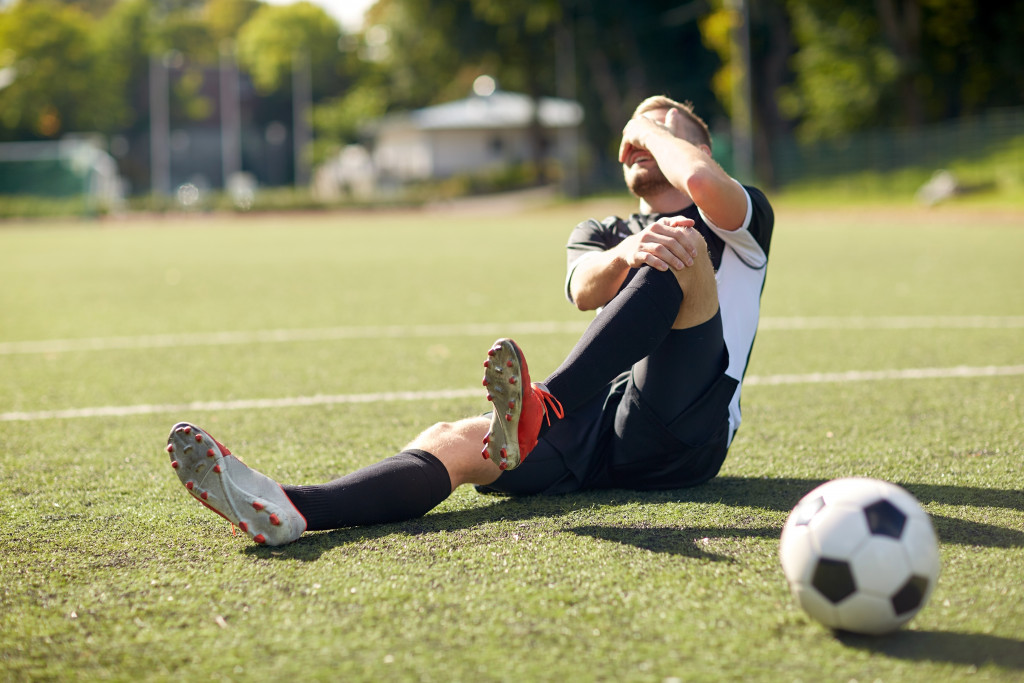Playing sports is a physically demanding activity. You must perform various skills during every sports game and train properly beforehand. That’s why you have to make sure that you’re in their best condition during training and the game itself. You have to undergo resistance training, flexibility exercises, and other conditioning strategies for the best athletic performance.
Unfortunately, health issues can arise when you fail to properly condition yourself or when injuries occur. Having these terrible conditions will hinder you from doing different tasks necessary for the sports games or even participating as a whole. That’s why you should know how to properly take care of your health and treat health problems once they arise. These are some serious health issues in sports and the ways to effectively treat them.
Exertional Hyponatremia
This condition is caused by the lack of sodium in your blood. It occurs when you don’t adequately replace your sodium losses through sweat or when you take more fluid replacement drinks than your sweat losses. Many factors, such as prolonged activities, gender, and overhydration, can also cause this condition.
Exertional hyponatremia poses serious health risks, so you should learn about prevention strategies and treatments for it. You should know about proper fluid intake throughout the day of your game. It is also crucial for you to have appropriate sodium intake while maintaining a healthy diet. And in more serious cases, you may need to undergo rapid sodium replacement and visit a hospital.
Gout
Intense pain and inflammation in the joints, usually in the big toe, can be experienced by athletes. It is caused by having too much uric acid in the blood, which leads to urate crystals accumulating in the joints. Eating meals with a lot of fructose, red meat, and shellfish can increases your risk of gout. Age, gender, and weight are also some factors that can add to this. Also, strenuous exercise increases the chances of getting the condition because it increases uric acid levels.
Remember that it is essential to treat gout as soon as possible to avoid worsening pain and joint damage. You can eat food rich in magnesium, ginger, celery, and more to lower their uric acid levels and prevent the symptoms of gout. You can also take supplements as uric acid support that have tart cherries, which effectively treat gout.
Hip Flexor Strain
Excessive use of your hip flexor muscles and tendons on the front of the upper thighs can cause hip flexor strain. Many activities can contribute to this condition, such as sprinting, climbing the stairs, and the sudden stop or start of motor activities. You can experience pain, inflammation, and bruising on their upper thighs because of this.
This condition can be treated like how people usually treat muscle strain. You can ice the area several times a day for a couple of minutes while resting. This should be done for two to three days. Then, you can massage the area and do minimal stretching activities to help completely heal the muscles. Wearing a compression wrap and taking a hot shower or bath can also help treat it.
Sciatic Nerve Pain
The nerve on your lower back to your legs is called the sciatic nerve, and it can experience pain and numbness when you pinch it while playing sports. It usually happens because of a herniated disc in your spine. Fortunately, you may only need non-operative treatments for it, such as using cold packs and stretching. Remember that you should keep moving instead of taking a rest to reduce the inflammation.
You should get better in a few weeks of treating sciatic nerve pain, but you may need surgery if it lasts for more than three months. When you experience loss of bladder or bowel function, weakness, severe pain, and numbness, you should immediately see a doctor. Observing your symptoms will be helpful so that you can consult your doctor right away to find out what you can do to recover.
Concussion
Usually, a concussion is caused by a sudden blow to the head that can jolt your brain, and it temporarily affects your brain function. Although it’s not the most serious type of traumatic brain injury, it can cause headaches, nausea, dizziness, and unconsciousness. It can also show delayed symptoms, so you can experience them days or weeks after the injury.
Having a mild concussion will only require you to rest for a couple of minutes to a week until the symptoms are gone. But if you lose consciousness due to that condition, you will need a doctor to evaluate your situation and treat you.
It is possible to face different health issues when you are participating in physically demanding activities like sports. This is why you should know how to properly condition your body and treat it in case a health issue occurs.

